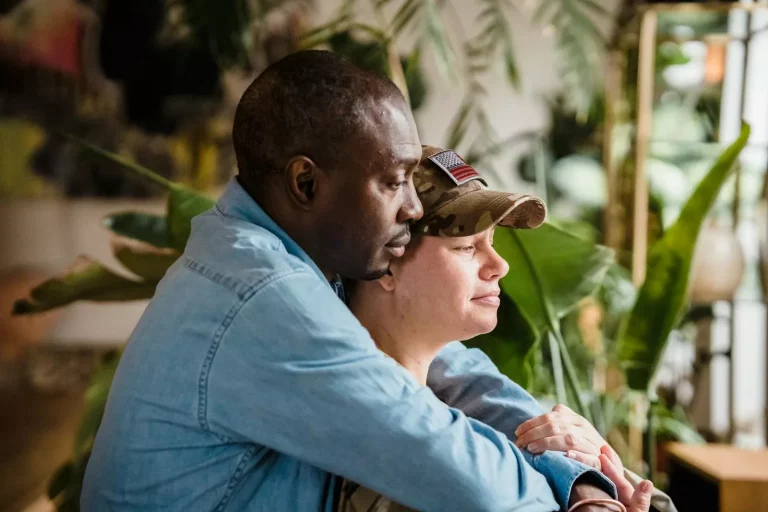How to Discuss Divorce: Strategies and Tips
Have you ever struggled to talk about getting a divorce with your partner? At TheBostonDivorceLawyer, we understand the challenges of discussing this difficult topic. In our article, we provide helpful tips on how to approach the conversation in a constructive and empathetic manner.
As demonstrated by legal experts in “The Divorce Handbook”, discussing divorce should involve honest communication, respect for each other’s feelings, and a willingness to find common ground. It is important to approach the conversation calmly and rationally, focusing on finding solutions rather than assigning blame. By following these guidelines, parties involved in a divorce can have a more productive and amicable discussion.
Definition
Divorce is when a married couple legally ends their marriage. This means they go through a court process to officially separate, divide their belongings and debts, and figure out custody of any children they have.
In simple terms, divorce is the formal way to stop being married. The process can be tough and involves lawyers and judges to help settle any disagreements and make important decisions for the future of both people.
When all is said and done, it’s important to understand what divorce means when talking about it. Knowing the basics helps with any further discussions or decisions.
Reasons
There are many reasons why couples get divorced, but they often come down to basic problems in the relationship.
One big issue is poor communication. If couples can’t talk about their feelings and needs, it can lead to misunderstandings and resentment, eventually breaking the relationship.
Cheating is another common cause of divorce. Trust is key in a marriage, and when one partner is unfaithful, it can be very hard to rebuild that trust. The pain caused by infidelity often leaves deep scars.
Sometimes, couples get divorced because they are simply not compatible. If you think about it, over time, they might realize they have different interests, values, or goals. Without compatibility, a marriage can struggle to last.
Money problems are also a major reason for divorce. Couples might fight about spending habits, financial goals, or other money-related issues. If these problems aren’t resolved, they can cause a marriage to end.
Effects
Divorce affects more than just the couple ending their marriage; it also impacts their children, families, and friends.
For the couple getting divorced, the emotional strain can be heavy. They might feel sadness, anger, guilt, and rejection. Financial changes are also common, as they need to split their assets and arrange support payments.
Children of divorced parents often go through a mix of emotions too. They can feel confused, anxious, or insecure about the changes in their family. They might feel torn between both parents and worry about how the divorce will affect their future relationships.
Extended family members and friends also feel the impact of a divorce. They may feel caught in the middle, unsure of how to support both parties, and they might struggle with their own feelings of sadness or anger about the situation.
Divorce doesn’t just affect individuals; it can change the community as well. Social circles may shift, and community events might feel different. Mutual friends can feel pressured to pick sides.
In general, talking about divorce needs to be done with care and understanding because it deeply affects many people and their communities.
Support
This means being a good listener and showing empathy towards someone going through a tough time. It’s important to listen without judging and let them express their thoughts and feelings openly. Reassure them that their emotions are normal and that it’s okay to feel upset or confused.
You can also help by connecting them with resources like therapy or support groups, or just by being available to talk when they need it. Encourage them to take care of themselves and practice self-care during this difficult period. Basically, make sure to check in regularly and ask how they’re doing, showing that you care about their well-being. Let them know you’re there for them no matter what and that they can talk to you anytime they need to.
In short, supporting someone going through a divorce means being there for them in a non-judgmental and understanding way. It’s about listening, offering practical help, and showing that you care about their well-being during this tough time.

Moving on
Accepting the end of a marriage can be tough and painful. It’s normal to feel sad, angry, or confused. Give yourself time to grieve and understand your feelings before moving forward.
Try to talk openly and honestly with your ex-spouse. Share your emotions and concerns calmly. Also, listen to what they have to say. Discuss practical matters like dividing assets and custody arrangements with empathy and understanding.
Lean on friends, family, or a therapist for support during this challenging time. In other words, talking to others can give you a new perspective and make you feel less alone. Take care of your physical, mental, and emotional health during this period.
Allow yourself to let go of the past and look towards the future. Moving on doesn’t mean forgetting the good times or the love you had. It means accepting that the relationship has ended and giving yourself a chance to heal and grow.
Remember, healing takes time. Be patient with yourself and let your emotions unfold at your own pace. Eventually, you’ll be able to move on and start a new chapter in your life.
Rounding it Up
Discussing divorce requires open communication, empathy, and honesty. It is important to approach the conversation with sensitivity and understanding, focusing on the well-being of all parties involved.
What TheBostonDivorceLawyers is liking is, by creating a safe and supportive environment, you can have a constructive dialogue that allows for a smooth transition and emotional healing.







